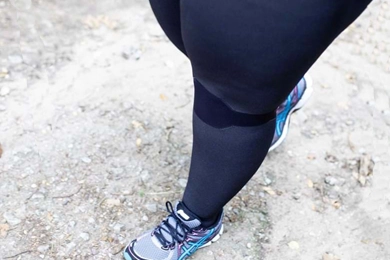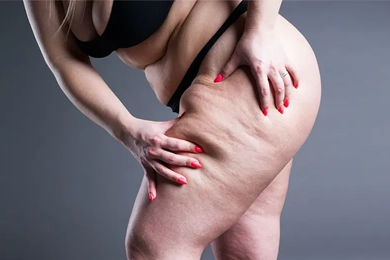
Lipedema is a persistent medical condition that predominantly impacts women and manifests as an abnormal accumulation of fat in particular body regions, including the legs and occasionally the limbs.
Although there is currently no known cure for lipedema, adherence to a carefully designed dietary regimen can significantly contribute to symptom management, enhancement of overall quality of life, and potentially deceleration of the condition's progression.
This exhaustive guide aims to examine the multifaceted elements of the “lipedema diet”, encompassing dietary recommendations, avoidance practices, and the potential positive effects of nutrition on individuals afflicted with this condition.
It is possible to experience discomfort, swelling, and mobility issues due to lipedema. Adequate nutrition can aid in weight management, inflammation reduction, and the alleviation of a portion of these symptoms. Nonetheless, it is critical to bear in mind that the course of lipedema treatment varies from individual to individual, and a universal dietary regimen might not be appropriate. Prioritizing consultation with a registered dietitian or healthcare professional is essential when formulating an individualized dietary regimen.
Particular foods that are incorporated into the diet may provide benefits for those who have lipedema. These include berries, leafy greens, and anti-inflammatory foods like fatty fish, which can aid in the reduction of discomfort and inflammation. Furthermore, a diet abundant in antioxidant-rich foods, high-fiber alternatives, lean proteins, and healthy lipids (e.g., avocados and nuts) can contribute to the enhancement of one's general health and state of being.
Certain substances and foods can exacerbate the symptoms of lipedema. One should limit or avoid consuming processed and fried foods, sweetened beverages, foods high in sodium and saturated fats, and trans fats. By decreasing consumption of these substances, inflammation can be managed and the likelihood of exacerbating discomfort associated with lipedema is diminished.
Adequate hydration is critical for the management of symptoms associated with lipedema. Adequate hydration aides in the maintenance of lymphatic function, decreases water retention, and benefits numerous bodily processes. Aim to consume sufficient water throughout the day in order to meet the requirements of your body.
A balanced diet and portion control are essential for weight management and overall health. It aids in weight maintenance and prevents excess, both of which are essential for individuals with lipedema.
People who have lipedema may find an anti-inflammatory diet to be especially beneficial. This strategy emphasizes consuming nutrients that decrease inflammation within the body. Salmon steamed with broccoli or a vibrant salad composed of a variety of nuts and fruit are two possible meal options.
Although weight management can be difficult for those with lipedema, it is vital for their overall health. If deemed necessary, gradual and sustainable weight loss strategies may be contemplated with the assistance of a healthcare professional.
Meal preparation and planning that are suitable for lipedema can facilitate adherence to this dietary regimen. It is advisable to develop meal plans and recipes that are in accordance with one's dietary requirements and personal preferences.
For the management of lipedema symptoms, certain individuals may find relief from dietary supplements or medications when prescribed by a healthcare professional. Discussion of these matters may occur during a consultation.
Complementing the lipedema diet with regular physical activity, ensuring adequate sleep, stress management, and investigation of lymphatic drainage techniques are additional measures that can enhance one's overall health and wellness, in addition to dietary modifications.
Working closely with a registered dietitian or maintaining a food journal can assist you in tracking your progress and modifying your diet as necessary.
In conclusion, the lipedema diet is an effective method for improving your quality of life and managing the symptoms of this condition. Always keep in mind that it is critical to seek guidance from a registered dietitian or healthcare professional in order to develop a customized nutrition regimen that addresses your specific requirements. You can manage your lipedema and enjoy a more comfortable, healthy existence with the proper guidance and dedication to an anti-inflammatory, well-balanced diet.
 Lipedema Socks
Lipedema SocksUsing customized compression clothing, sometimes referred to as lipedema socks, is one of the supportive treatments for treating the symptoms of lipedema. ...
 Lipedema Treatment with VASERLipo (Vaser Liposuction)
Lipedema Treatment with VASERLipo (Vaser Liposuction)A chronic illness called lipedema, which mainly affects women, is characterized by an abnormal build-up of fat, generally in the arms but also in the legs. ...
 Unveiling Lipedema: Treatment, and the Benefits of Vaserlipo
Unveiling Lipedema: Treatment, and the Benefits of VaserlipoLipedema is a common illness that often goes undetected or is misunderstood. It is a chronic condition characterized by aberrant fat cell buildup in the legs and, in some cases, the arms. ...